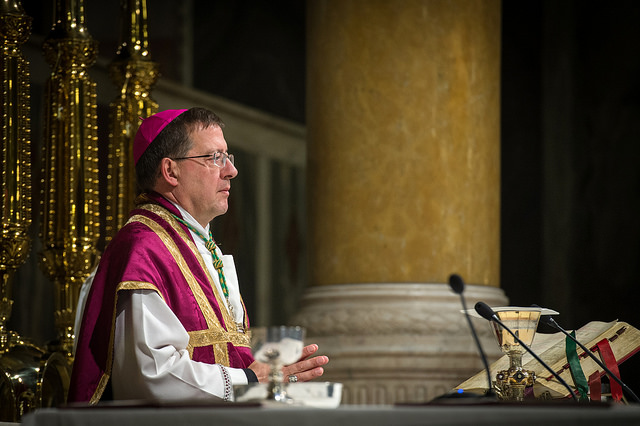On 21st June, the Court of Protection ruled that a pregnant woman with disabilities should have an abortion against her wishes. On 24th June, the Court of Appeal overturned this decision. Bishop John Sherrington reflects on the situation.
On Monday 24th June the Court of Appeal overturned the Court of Protection’s initial verdict that a woman, who was 22 weeks pregnant and lived with a ‘moderate to severe’ learning disability, should be forced to have an abortion against her will. Mrs Justice Lieven in the Court of Protection had argued this would be in her ‘best interests’. The mother who wanted to continue her pregnancy, her own mother, her social worker and her legal team argued that the pregnancy should continue. The final judgment is to be welcomed. We can rejoice that both the life of the unborn child has been protected and the mother’s wishes respected. A grave injustice has been stopped.
The initial judgment by the Court of Protection raises a number of serious concerns.
As the judicial proceedings are not available in the public domain at the time of writing, we must rely on news reports for information about what took place. The Court of Protection became involved because the NHS Service caring for the pregnant woman argued that she lacked mental capacity and that abortion was the best option. They were worried about her psychiatric health and that her behaviour could pose a risk to the baby (BBC News 24th June 2019). Such a risk could be mitigated by the care and support of her family around her. The death of the child was ignored.
The right of a mother to bear a child is a human right, and that child has the right to life and to be brought up in a family. Both these rights were argued by the child’s mother, grandmother and her support team. There is no evidence that they would be unable together to care for the baby.
Both the child and the mother are healthy. Aside from the moral questions that this case raises, even the legal reasons for abortion, that the continuation of the pregnancy poses a risk to the physical health of the mother or that the child has the probability of disability, are not present. The fact that the mother wishes to continue the pregnancy does not suggest that there is a risk to her mental health (a further legal reason for abortion). The abortion could pose a greater risk to the health of the mother and induce post-traumatic stress as well as the death of the child.
Mrs Justice Lieven argued that to give birth to the child and then have the child remain in the family or be fostered would cause more distress than if the abortion took place. This overlooks the loss that the mother would feel and the trauma of the late abortion which could have lasting consequences on her already fragile and vulnerable mental well-being. Fortunately, the Court of Appeal recognised the serious harm of this decision.
The mother has a learning disability. Mrs Justice Lieven explained her decision by arguing that the abortion was in her ‘best interests’. She said, ‘I think she would like to have a baby in the same way she would like to have a nice doll’. Further, ‘Pregnancy, although real to her, doesn't have a baby outside her body she can touch.’ (Sky news 23th June 2019) These are both highly disparaging comments. Children, even at a very early age, can distinguish between a doll and a baby. In fact, they have a natural affinity with babies. Adults with learning disabilities are often the most loving of people and can teach us a lot about spontaneity, joy and childlike love. The fact that the grandmother, who has cared for her daughter and probably knows her best of all and is fully supportive of her daughter’s pregnancy and the care of her grandchild, argues that the forced abortion was not only an ‘immense intrusion’ (to use the Judge’s words) into their lives but also gravely unjust.
The decision raises many questions about the meaning of ‘best interests’. When abortion is seen as the ‘solution’ to the ‘problem’ of pregnancy, it is likely that many will see this as a solution to a complex situation. According to such a mindset, the problem ‘simply goes away’. On the other hand, the desire of the mother to continue the pregnancy, the birth and the joy of a baby are important factors that only the Court of Appeal sufficiently recognised.
It is paradoxical that when the social narrative is dominated by the language of choice and the rights of persons with disability, the initial verdict went against both of these factors and argued that a forced abortion be carried out.
The debate must continue about the rights of a mother living with a disability, the right of the unborn child and the limits to the right of the State to intervene and force an abortion. Society needs a moral framework with safeguards to protect the intrinsic and incommensurate good of every human life, especially the weakest and the most vulnerable. It is hoped that the judgment of the Court of Appeal will further this aim and help change minds and hearts to care for unborn children and their mothers.
Bishop John Sherrington is the lead bishop on life issues for England and Wales.




